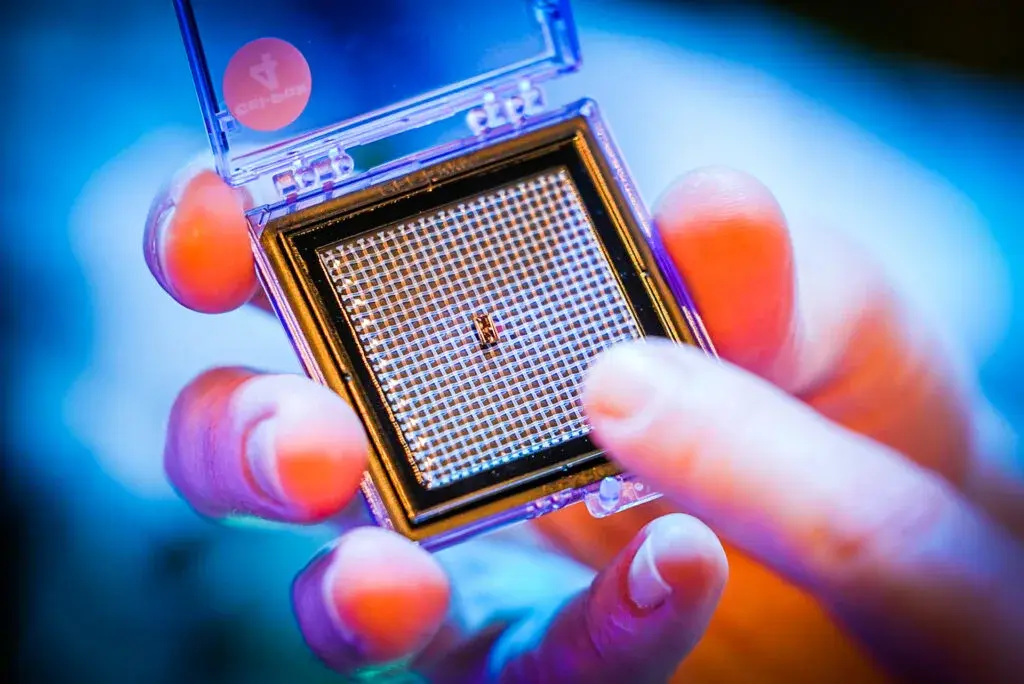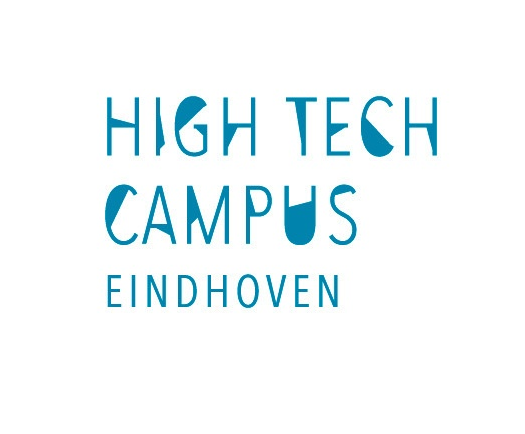


The PhotonDelta Foundation, the driving force behind the integrated photonics ecosystem, has recently moved to a new office at HTC 32 while on its way to support the integrated photonics ecosystem. PhotonDelta’s team has 30 employees, including five contractors, all working to deploy the organization's program across the integrated photonics sector.

We sat down with Floris Maassen, Marketing & Communications at PhotonDelta, for an update on what’s happening with new office space at HTCE, new and expanded initiatives within the integrated photonics ecosystem and a major funding milestone.
Shortly after talking with Floris, we learned of a funding announcement: the Ministry of Economic Affairs awarded €100.8 million in unconditional funding to Phase 2 of the National Growth Fund program. This brings the total committed public funding for PhotonDelta to €420 million. The announcement reinforces continued confidence in the organization's mission and the importance of long-term impact.
The funding comes at a crucial time when photonic chip technology is taking center stage in megatrends such as AI, quantum technology, energy-efficient data infrastructure and sensing. Industry leaders such as NVIDIA and TSMC are placing photonic chips at the heart of the AI revolution, highlighting their critical importance on the global stage.
One of PhotonDelta's most significant recent initiatives is the launch of its photonics jobs portal, designed to address the sector’s growing talent needs. “Around 2030, some odd 5,000 employees need to work in the integrated photonic sector,” Floris explains. “So, that's where we have a complete human capital program running.”
“In tech, we don’t just need the smartest and brightest, we need all kinds of people in different stages of their careers,” he said. “We have a little over 70 actual companies that are involved in the integrated photonics industry, giving employment to approximately 700 people,” Floris said. “We shouldn’t only focus on vets out of the industry or adjacent industries, but also on the really practical operators and upcoming talent. Across the board, we need everybody."
The portal aggregates career opportunities from across PhotonDelta’s partner websites, spanning all skill levels. from medium-level MBO positions to PhD roles and industry veterans. (At the time of publication, there were 11 PhD positions listed on the site.)
The careers website launched last year and has already begun showing promising results. “What we see is traffic now is increasing, so that goes to show that it really works," Floris said. The platform not only lists job opportunities but also provides information about companies, their locations and their specific activities within the integrated photonics sector.

PhotonDelta's ecosystem-building efforts extend beyond talent development to include physical infrastructure. The “ecosystem orchestrator” was instrumental in supporting TNO's announcement of a new photonic chip production facility at HTCE, with construction set to begin in 2025. The new facility represents an important step in bridging the gap between innovation and production.
The production facility, announced in June 2025, will complement existing photonics infrastructure, including the photonics lab, as part of PhotonDelta's comprehensive approach to ecosystem development. “TNO is in the lead there," Floris explains, highlighting the collaborative nature of the Campus's integrated photonics initiatives.
TNO announced a director whose name is very familiar in the integrated photonics ecosystem: Boudewijn Docter, who founded EFFECT Photonics while earning his PhD at Eindhoven University of Technology.
Boudewijn’s official title is Director of Engineering at TNO, but he’s tasked with setting up the new 6” InP PIC pilot line at HTCE. He’ll start by hiring about 40 employees for the new initiative.

This news came fast and furious after the announcement of the opening of the Holst Centre Photonics Lab in May. Imec and TNO officially launched a state-of-the-art facility dedicated to integrated photonics research and development in the Netherlands. According to the announcement, “By advancing photonics research and fostering collaboration between industry and academia, the lab aims to bridge the gap between innovation and industrialization for applications in sectors such as automotive, healthcare and data communications.”
The new lab is also located at HTCE and is partly funded by – you guessed it – PhotonDelta.

PhotonDelta recently wrapped up its global photonics engineering competition, which challenged participants to develop new applications for integrated photonic chips. The winner, Perceptra, develops Raman spectroscopy solutions for healthcare applications and received €50,000 worth of services from the ecosystem.
"We invited everybody, basically, to come up with an idea of how to apply integrated photonic chips, so come up with a new application, maybe even new markets, to solve a problem we don't know about,” Floris said. The results were impressive: the competition attracted 33 applicants and highlighted the potential for integrated photonics technology beyond traditional applications.

The integrated photonics community comes together this November for the PIC Summit Europe, sponsored and organized by PhotonDelta.
The annual event serves as a crucial networking and knowledge-sharing platform for the growing ecosystem. “We have grown with over 10 companies since last year,” Floris says, which shows the ecosystem’s continued expansion.
According to the PIC Summit Europe website, the event will “bring together designers, foundries, integrators, OEMs and thought leaders to tackle the industry’s biggest challenges and opportunities. From advancing manufacturing capacity to expanding market applications and securing funding for growth, this event is where the photonic chip industry aligns its vision for the future.” You can register to attend PIC Summit here.
PhotonDelta's move on Campus reflects the broader growth of the integrated photonics sector in the Netherlands. With more than 70 companies now listed in the ecosystem and ambitious growth targets by 2030, PhotonDelta continues to position the Netherlands as a global leader in integrated photonics innovation.
As Floris puts it, “There’s more to do. And probably that feeling will stay until actually we have switched off the office lighting. Until that time, HTC remains a great place for us. The service, the high tech environment and of course the presence of photonic chip companies is priceless.”

Read more about the integrated photonics ecosystem at HTCE and download the entire list of more than 30 integrated photonics players. We updated the overview with the recent developments in August 2025.